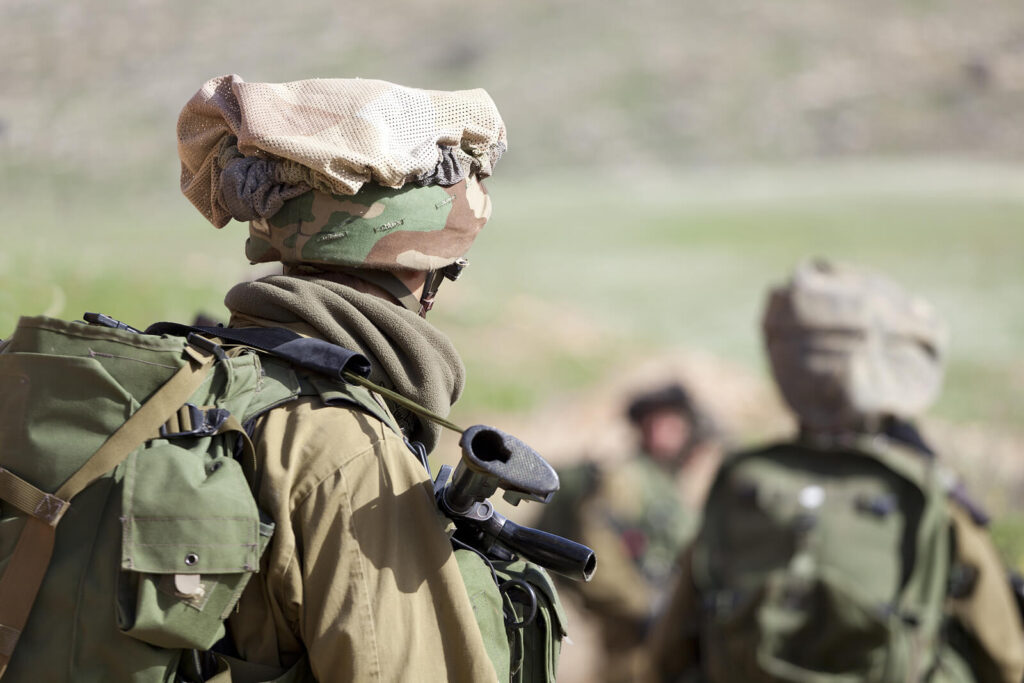Israel is stepping up its ground attack in the Gaza Strip, but destroying a powerful movement like Hamas is a tall order due to several difficulties and constraints. Furthermore, achieving this goal might ultimately be counterproductive for Israel.
The delicate balance is that Israel must hit Hamas hard but aim to end the operation as soon as possible, while also determining if her war goals are the right ones. From an operational standpoint, Israeli ground units will have to overcome major challenges.
First, the fight will take place in urban combat in a highly dense area, with a vast network of tunnels under it that serve for hiding and as a springboard for strikes. Second, the IDF will confront anti-tank missiles, improvised explosive devices and mines, which will delay the advance and cause casualties. Third, the IDF will use massive firepower to protect its troops by suppressing hostile fire. But at the same time Israel also must do its best to minimize civilian casualties, a difficult task during an intense fight.
Israel currently has international support from the U.S. and other allies to strike Hamas, as long as the civilian population in Gaza does not pay a significant price, especially in loss of life. But if civilian casualties mount, then Israel would be in a tough spot and might see its support diminish.
Geopolitical considerations in the balance
Israel must also weigh geopolitical considerations as it faces an aggressive Iran and its proxy in Lebanon, Hezbollah.
The war is unlikely to include a direct Iranian military involvement, but as the fight in Gaza continues against Iran-funded Hamas, it might further devolve relations between Israel and Iran, which are already in a low point. The danger is that a prolonged conflict could increase the probability of a direct confrontation between Israel and Iran, who both must tread carefully or find themselves in their first shooting war.
Hezbollah, Iran’s most powerful Arab partner, has up to 150,000 rockets and missiles that can reach most of Israel. Iran and Hezbollah have solid reasons to steer clear of all out confrontation with Israel. For example, Iran would rather keep Hezbollah intact so it can deter Israel from bombing Iran’s nuclear sites.
Hezbollah does not want to risk a destructive war with Israel, which is why Hezbollah has restrained its actions against Israel for almost 20 years, since their last war in 2006. While Israel and Hezbollah have had minor clashes since Hamas crossed the border in its terrorist attack on Oct. 7, there is precedent for Hezbollah sitting out the conflict. Hezbollah has stayed out of all the fights that occurred between Israel and Hamas since 2008.
But if the confrontation between Israel and Hamas intensifies, it will increase the odds of more and bigger skirmishes between Israel and Hezbollah, which might escalate into a full-scale war. Israel can fight two fronts simultaneously in the Gaza Strip and Lebanon, but it would rather avoid that predicament for the strain on resources and personnel it would create.
The Biden administration is playing a major deterrent role by sending two carrier strike groups to the east Mediterranean, to dissuade Iran and Hezbollah from joining the fight and by providing missile defense, as the U.S. Navy has already done near Yemen.
After Hamas, what comes next?
If Israel is able to remove Hamas from power, that creates another serious dilemma: who will replace it?
Israel certainly does not want to go back to ruling the Gaza Strip. And the Palestinian Authority, which currently barely holds on to its territory in the West Bank, can’t regain control of the Gaza Strip. Arab states are another option. But while several call for a cease fire, no Arab state, including the only one that has a border with the Gaza Strip, Egypt, wants to take on the demanding task of running the Gaza Strip. The U.N. certainly can’t do this job.
The danger then is that winning the war against Hamas will create a worse problem — the Gaza Strip could sink into anarchy, where different groups fight each other while confronting Israel as well.
Should Israel be in a position maintaining control of Gaza after a military victory, it could be faced with a serious humanitarian crisis, due to the poor state of Gaza’s infrastructure, which will only get worse due to the war. Israel does not want to be responsible for causing nor solving this huge problem, but this will happen if Israel gets too enmeshed in the administration of the Gaza Strip.
Hamas senior official Khaled Mashal said the terror group is “well aware of the consequences” of its Oct. 7 attack. Israel will have to deftly manage those consequences in the weeks ahead.






